When it comes to sipping your way to better health, few choices are as steeped in tradition—and confusion—as the age-old debate between black tea and green tea. Both hail from the same Camellia sinensis plant, yet they emerge from the teapot with wildly different personalities. One is bold, dark, and malty—perfect for powering through groggy mornings. The other is light, grassy, and delicate, often praised as a zen-like tonic for body and mind. But when the mug meets the lips, which brew actually delivers the most benefits?
In a world awash with wellness trends and quick fixes, tea has remained a constant companion for centuries. And it’s not just for cozy nights or afternoon breaks anymore—modern research shows both black and green tea are packed with compounds that can do everything from boost brain function to protect your heart. Still, despite their shared roots, the way each tea is processed creates distinct chemical profiles, offering unique advantages depending on your health goals.
Whether you’re trying to shed a few pounds, sharpen your focus, improve your gut health, or just replace your third cup of coffee, your perfect tea match might surprise you. Should you reach for the deep, rich flavor of black tea to get through the day? Or does green tea’s antioxidant power make it the smarter daily ritual?
We’ve brewed up all the facts—backed by science and expert insight—to help you make the right call for your body, your routine, and your taste buds. Let’s explore what each tea brings to the table, who benefits most from each, and why the right pick might just become your next daily essential. Spoiler: it’s not a one-size-fits-all answer—but one cup could make a big difference.
1. Black Tea: Supports Heart Health
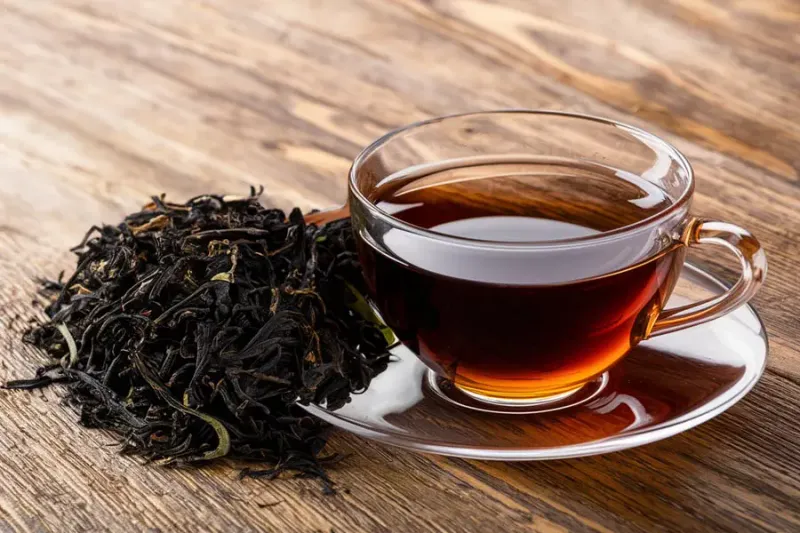
Your cardiovascular system gets a significant boost from regular black tea consumption. Studies show it can lower LDL (the ‘bad’ cholesterol) while improving blood pressure readings over time.
The flavonoids in black tea help maintain blood vessel health by improving their function and reducing inflammation. These compounds work quietly in your body, strengthening your heart with each cup.
Many doctors now recommend adding black tea to heart-healthy diets. Just 2-3 cups daily could reduce your risk of heart disease by up to 11%, making it a simple yet powerful addition to your wellness routine.
2. Black Tea: Enhances Mental Alertness
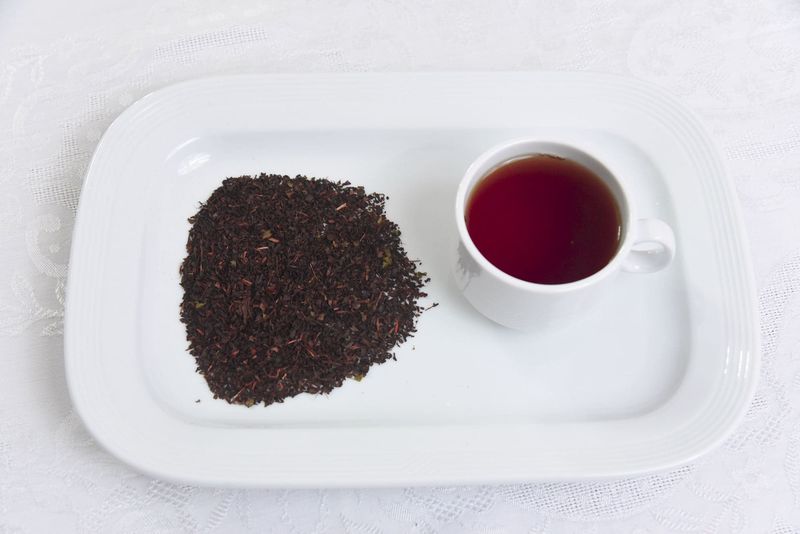
Black tea offers the perfect balance of stimulation and calm. The moderate caffeine content wakes up your brain without the jittery aftermath of coffee, while L-theanine promotes a state of relaxed awareness.
Students and professionals alike report improved concentration and clearer thinking after enjoying a cup. This natural focus-enhancer works within 30 minutes and can last for several hours, making it perfect for morning or mid-afternoon consumption.
Unlike energy drinks with their crash-and-burn effect, black tea provides sustained mental energy. The combination of compounds creates what researchers call ‘mindful alertness’ – being sharp but not stressed.
3. Black Tea: Aids in Blood Sugar Regulation
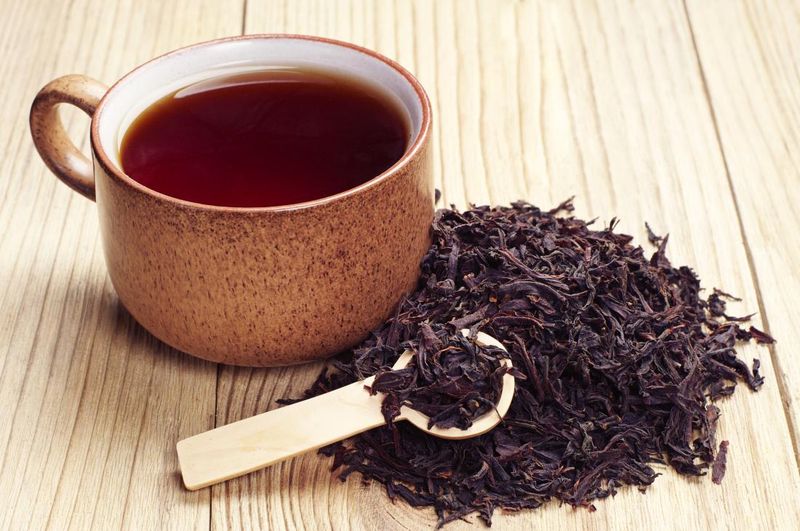
Managing glucose levels becomes easier with black tea in your daily routine. The polyphenols work like tiny helpers that improve how your cells respond to insulin, making this beverage particularly valuable for those with type 2 diabetes or prediabetes.
Research published in the Asia Pacific Journal of Clinical Nutrition found that black tea consumption helped reduce blood sugar spikes after meals. This steady-state approach to glucose management prevents the energy crashes that often lead to unhealthy snacking.
Adding black tea to your diet doesn’t require special preparation. Simply enjoy it plain or with a splash of milk – just skip the sugar to maximize its blood glucose benefits.
4. Black Tea: Reduces Stroke Risk

The protection black tea offers against stroke is remarkable. Population studies across multiple countries have consistently shown that daily drinkers have up to 21% lower stroke risk compared to non-tea drinkers. The magic happens through multiple mechanisms.
Black tea improves blood vessel function, reduces plaque buildup in arteries, and helps maintain healthy blood pressure – all critical factors in stroke prevention. The flavonoids in black tea, particularly theaflavins and thearubigins, are the star players in this health benefit.
These compounds help maintain flexible, clear blood vessels that can efficiently deliver oxygen to your brain, creating a powerful shield against one of the world’s leading causes of disability.
5. Black Tea: Promotes Gut Health

Your digestive system thrives when you drink black tea regularly. The polyphenols act as prebiotics, feeding the beneficial bacteria in your gut and creating a healthier microbiome. Many people notice improved digestion and less bloating when they make black tea part of their routine.
These effects come from both the antimicrobial properties that help control harmful bacteria and the compounds that reduce inflammation in the digestive tract.
Black tea’s tannins have a mild astringent effect that can help with occasional diarrhea. For centuries, grandmothers have recommended black tea for upset stomachs – modern science now confirms this traditional wisdom has real merit.
6. Black Tea: Provides Antioxidant Protection

Black tea serves as your body’s personal shield against oxidative damage. The theaflavins and thearubigins – unique antioxidants found almost exclusively in black tea – neutralize harmful free radicals before they can damage your cells.
These powerful compounds work throughout your body, from your skin to your internal organs. Regular consumption builds up a protective effect that may help prevent premature aging and reduce the risk of chronic diseases.
Unlike many supplements, black tea’s antioxidants are highly bioavailable, meaning your body can actually absorb and use them effectively. This natural protection starts working with your very first cup and builds with consistent daily consumption.
1. Green Tea: Green Tea: Boosts Brain Function
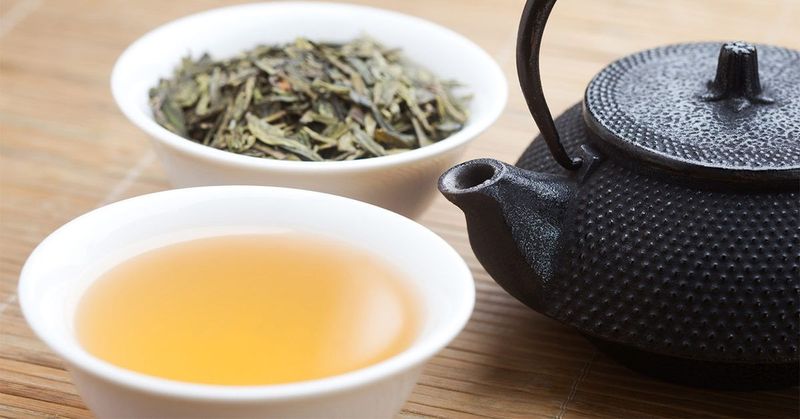
Green tea creates the perfect brain-boosting combination with its natural caffeine and L-theanine content. The caffeine increases neuron firing and concentrates brain chemicals like dopamine, while L-theanine promotes relaxation without drowsiness.
Students who drink green tea before studying often report better memory retention and faster recall during exams. This cognitive enhancement isn’t just temporary – research suggests regular green tea consumption may help maintain brain function as we age.
The effect feels different from coffee’s jolt. Green tea drinkers describe a smooth, clear-headed alertness that arrives gently and lasts longer. This balanced stimulation makes it perfect for creative work, studying, or any task requiring sustained mental effort.
2. Green Tea: Supports Weight Management

Green tea’s reputation as a weight management ally is well-deserved. The catechins, particularly EGCG, boost your metabolism and increase fat oxidation, helping your body burn calories more efficiently throughout the day.
Many people find that drinking green tea helps control appetite naturally. The combination of caffeine and catechins can increase feelings of fullness and reduce the urge to snack between meals.
Research shows that green tea is especially effective at targeting abdominal fat – the dangerous visceral fat that surrounds organs. While not a miracle solution, adding 2-3 cups daily to a healthy diet and exercise routine can amplify your weight management efforts and help maintain results long-term.
3. Green Tea: Lowers Risk of Cardiovascular Disease
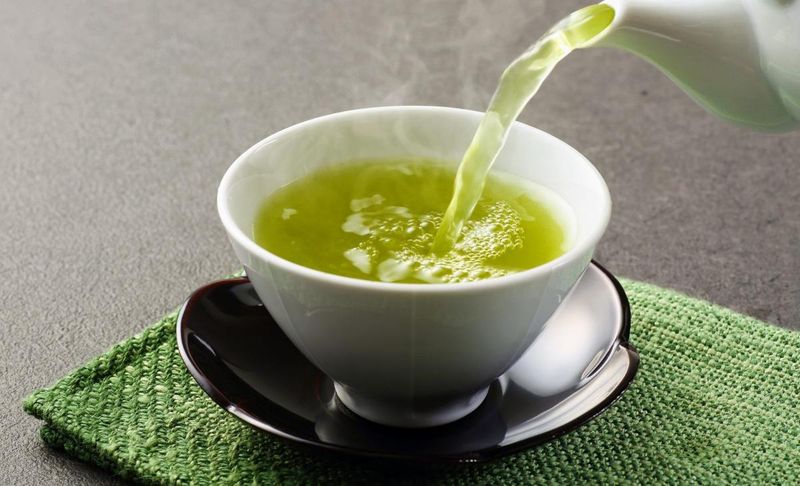
Green tea works like a gentle guardian for your heart. Its catechins help lower total cholesterol while increasing HDL (the ‘good’ cholesterol), creating a healthier balance that reduces plaque buildup in arteries.
Blood pressure improvements often follow regular green tea consumption. The polyphenols help relax blood vessels, allowing blood to flow more easily and reducing strain on the heart muscle.
A Japanese study tracking over 40,000 adults found that those drinking five or more cups of green tea daily had a 26% lower risk of dying from heart attack or stroke. Even modest consumption of 1-2 cups daily showed measurable benefits, making green tea one of the simplest heart-healthy additions to your routine.
4. Green Tea: Enhances Cognitive Health

Green tea contains compounds that actively protect your brain cells from damage. The catechins cross the blood-brain barrier where they shield neurons from harmful processes that lead to cognitive decline. Remarkable research from multiple countries shows that regular green tea drinkers have lower rates of both Alzheimer’s and Parkinson’s diseases.
The EGCG in green tea appears to reduce the formation of amyloid plaques associated with Alzheimer’s and protects dopamine-producing cells affected in Parkinson’s. Beyond disease prevention, green tea enhances everyday brain function.
Many seniors who drink it regularly report better memory, sharper thinking, and more mental clarity compared to non-tea drinkers, suggesting it helps maintain cognitive abilities as we age.
5. Green Tea: Improves Dental Health

Your smile benefits tremendously from green tea’s natural properties. The catechins attack the bacteria that cause plaque formation, tooth decay, and bad breath, acting as a gentle daily mouth cleanser. Dentists have noted that regular green tea drinkers often have healthier gums with less inflammation.
The antioxidants reduce the body’s inflammatory response to bacteria, helping prevent gingivitis and periodontitis – serious gum conditions that can lead to tooth loss.
Green tea even helps neutralize sulfur compounds that create bad breath. Unlike mouthwashes that temporarily mask odors, green tea addresses the root causes of halitosis. Just remember to skip the sugar to maintain these dental benefits!
6. Green Tea: Provides Antioxidant Support
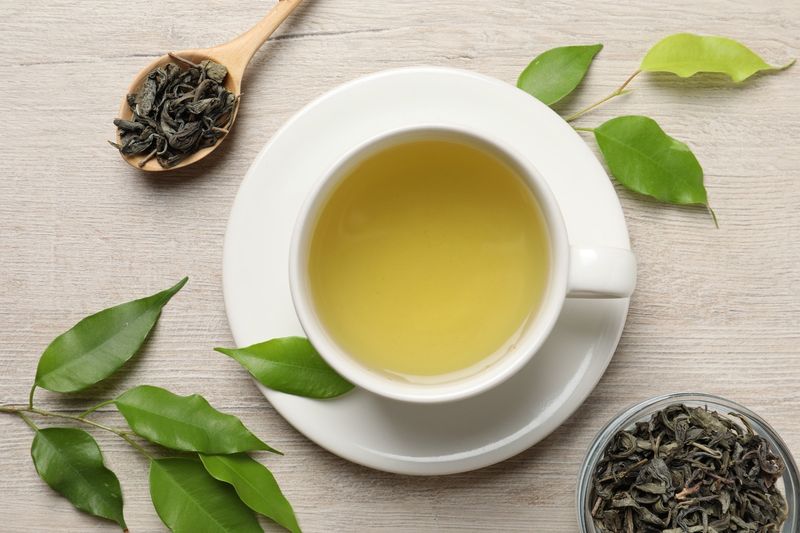
Green tea delivers an antioxidant powerhouse centered around EGCG (epigallocatechin gallate), one of the most potent plant compounds discovered. These antioxidants neutralize free radicals before they can damage your cells, DNA, and tissues.
The protection extends throughout your body, from your skin to your internal organs. Many regular drinkers report improved skin clarity, reduced inflammation, and greater resilience against environmental stressors.
Unlike many antioxidant supplements, green tea’s compounds are highly bioavailable and work synergistically. A single cup contains more antioxidants than many servings of fruits or vegetables, making it one of the most efficient ways to boost your body’s natural defense systems against oxidative stress.
Why You Should Pick Black Tea
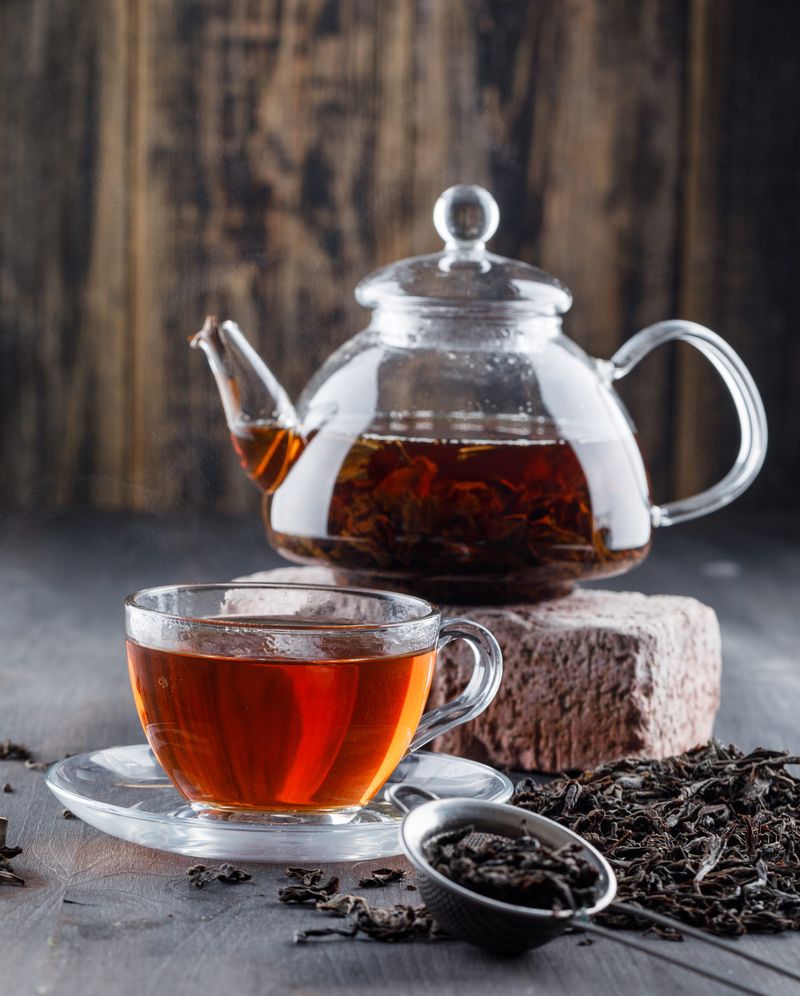
Black tea stands out with its bold, robust flavor profile that holds up beautifully to milk and sweeteners. Its rich amber color and satisfying taste make it the perfect morning companion for those who appreciate a stronger brew with character.
The higher caffeine content (about 40-70mg per cup) provides a more substantial energy boost than green tea. This makes black tea ideal for replacing coffee or powering through afternoon slumps when you need reliable mental clarity without coffee’s potential jitters.
Health-wise, black tea excels particularly in heart protection, blood sugar management, and digestive benefits. If these areas are your primary health concerns, or if you simply prefer a more traditional, full-bodied tea experience, black tea deserves the premier spot in your cupboard.
Why You Should Pick Green Tea

Green tea offers a refreshing, delicate flavor profile with grassy, vegetal notes that tea connoisseurs treasure. Its lighter body and subtle complexity make it perfect for those who prefer nuanced beverages that can be enjoyed without additives.
Weight management support stands as one of green tea’s most celebrated benefits. The metabolism-boosting combination of catechins and caffeine makes it a natural ally for those mindful about maintaining a healthy weight or supporting their fitness goals.
The exceptional concentration of antioxidants, particularly EGCG, creates a powerful protective effect throughout the body. If brain health, cancer prevention, and anti-aging benefits top your wellness priorities – or if you simply enjoy a lighter, more subtle tea experience – green tea deserves a permanent place in your daily routine.
Leave a comment